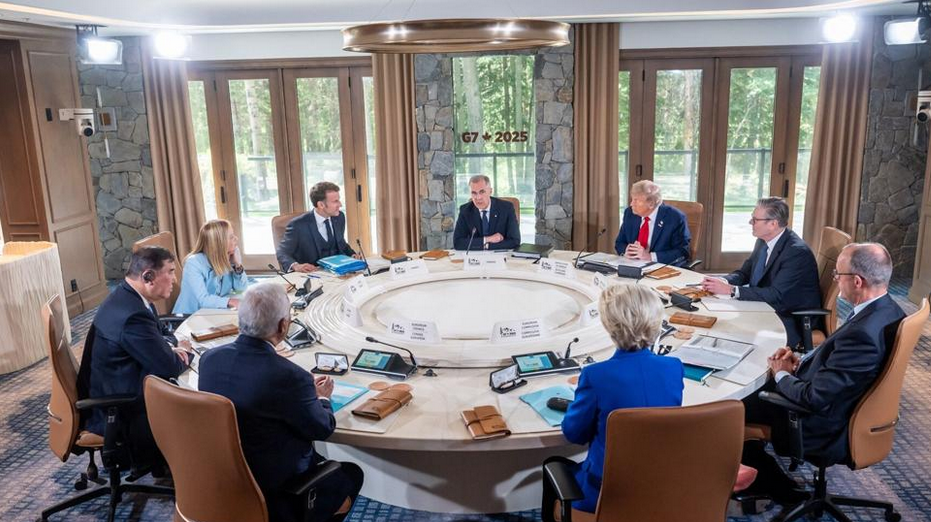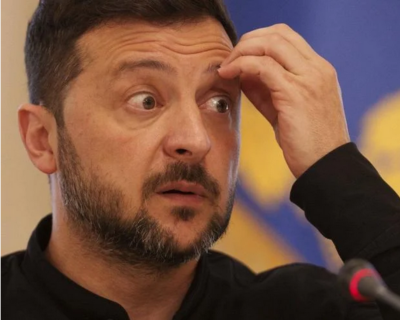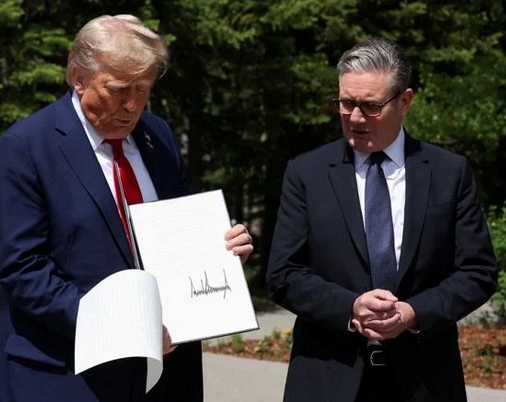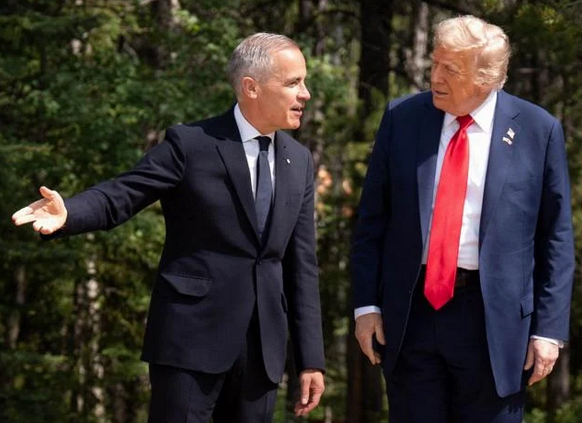June 17th, 2025
BURLINGTON, ON
Prime Minister Mark Carney and U.S. President Donald Trump failed to reach an agreement Monday that would see the U.S. drop billions of dollars in import taxes on Canadian products despite what Carney called their “fantastic” meeting on the sidelines of the G7 summit.
Instead, the two leaders instructed their negotiating teams to accelerate talks, and to meet again before the end of this week in an effort to land a deal within 30 days, according to the Prime Minister’s Office, which issued a late-day summary of the meeting.
Canadian officials held out hope they can still bridge the divide within that time, but Canada’s ambassador to the U.S., Kirsten Hillman, said, “we’re not there yet.”

From left to right, clockwise, Japan’s Prime Minister Shigeru Ishiba, Italy’s Prime Minister Giorgia Meloni, French President Emmanuel Macron, Prime Minister Mark Carney, U.S. President Donald Trump, British Prime Minister Keir Starmer, German Chancellor Friedrich Merz, European Commission President Ursula Von der Leyen and European Council President Antonio Costa attend a working session during the Group of Seven (G7) summit on June 16, 2025. Michael Kappeler/Pool/AFP TNS
Meanwhile, the British and the Americans have signed a deal.
Carney appears to have thought it was a promising start to the G7 summit, but at this point it has not ended a promising note.
Trump abruptly left Kananaskis after the leaders’ dinner on global security to return to Washington. His press secretary Karoline Leavitt tweeted he’d “had a great day” but that “because of what’s going on in the Middle East,” the president would cut his Canadian trip short.

Ukraine President Volodymyr Zelensky expecting to take part in discussions on the war with Russia. Trump left the G7 meeting before Zelensky arrived.
From Carney’s perspective, the summit loses its heavyweight player on the eve of sensitive talks about Ukraine with President Volodymyr Zelenskyy.
Whatever the Carney-Trump divide over a new deal is really about, only a handful of people know. It was clear however, that the question of tariffs — a foundational tool in Trump’s foreign and economic policy tool box — remains a sticking point. Carney has upped Canada’s defence spending, opened the door to Canadian participation in American-led missile defence, and underscored willingness to be a U.S. partner on energy security.
But it was all about tariffs — the import charges Trump is wielding as a weapon against all of America’s trading partners.
Trump suggested any new trade deal would include tariffs when he spoke to reporters after the two leaders met for about 30 minutes behind closed doors, before inviting their broader teams inside and letting the media catch a glimpse of their dynamics.
Trump said “it’s not so much holding up,” but that he and Carney have fundamentally “different concepts” about what an agreement should look like. Trump says Canada and the U.S. have “different concepts” about a potential trade deal.
“I have a tariff concept,” Trump replied. “Mark has a different concept, which is something that some people like, but we’re going to see if we can get to the bottom of it today. I’m a tariff person, I’ve always been a tariff (person) — it’s simple, it’s easy, it’s precise, and it just goes very quickly.
“And I think Mark has a more complex idea, but also very good. So we’re going to look at both, and we’re going to see what we’re going to come out with.” Trump said a deal is still within reach within days or weeks, “if both parties agree, sure.”

Trump with U.K. Prime Minister Keir Starmer and a new signed executive order on a U.S.-U.K. tariff deal.
That point was underscored later in the day when Trump met U.K. Prime Minister Keir Starmer before he signed new executive orders on a U.S.-U.K. tariff deal. Trump’s papers spilled to the ground and nearly blew away in the warm afternoon wind, but they still retained a chilly 10 per cent baseline tariff on most British exports to the U.S. The “deal” includes future reductions in steel and aluminum tariffs if Starmer’s promise to open up other sectors like pharmaceuticals is kept.
The president said the U.K. is “very well protected” from tariffs. “You know why? Because I like him, that’s why. That’s their ultimate protection.”
A White House official declined the Star’s request to provide more details on the Carney-Trump meeting.
Dominic LeBlanc, the cabinet minister leading trade talks, and Hillman, Carney’s ambassador in Washington, portrayed it as productive. Hillman said “our goal is to get tariffs off,” but added, “we are not there yet” and acknowledged that getting to zero tariffs will be hard.
“We have a president who is very convinced of the policy that he has around tariffs in order to achieve some of his policy goals,” she said. “We are very convinced that applying that policy to Canada is actually detrimental to his overall goals, and we are trying to get there with him and his officials, so that they understand our perspective.”
Both sides said they have agreed not to talk publicly about the details of what they are discussing. The Canadians also refused to say if Trump at any point repeated his view that Canada should become his country’s 51st state.
“We’re not going to go into the private details of the conversation,” added LeBlanc. “Our focus was on the economic opportunity of working with the United States, and that was the conversation that the prime minister had.”
Trump reciprocated, saying he and Carney have “developed a very good relationship.” On trade, he added, “I’m sure we can work something out.”

“I have a tariff concept, Mark has a different concept, which is something that some people like, but we’re going to see if we can get to the bottom of it today. I’m a tariff person, I’ve always been a tariff (person) — it’s simple, it’s easy, it’s precise, and it just goes very quickly.”
Flavio Volpe, head of Canada’s Auto Parts Manufacturers Association, said he believed their meeting telegraphed progress. Even the fact that few are talking, and none of Trump’s officials are “speaking out as a surrogate anymore,” suggests to Volpe “that means that the deal, whatever deal we think we’re going to get, is close.”
Trump, who has said he’s negotiating with 15 countries with which he hopes will reach agreements in the next few weeks, has long suggested tariffs are the new normal, with exemptions available for countries that want to grant the U.S. better access to their markets.
Carney has repeatedly said he is not interested in simply striking out one particular tariff or another. Instead, the prime minister wants to settle on a new comprehensive economic and security agreement to frame how Canada and the U.S. will move forward on defence co-operation, energy security and trade issues, as he seeks to diversify Canada’s alliances with other international partners. The Canadians believe broader trade talks should take place in the context of the 2026 review of the Canada-U.S.-Mexico trade deal.
















Leave a Reply